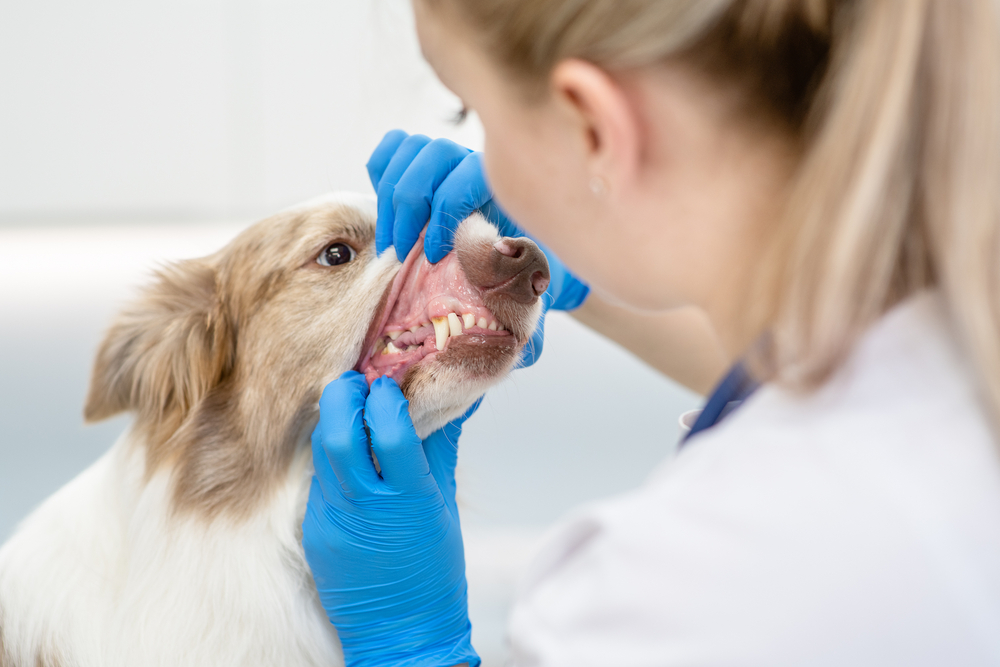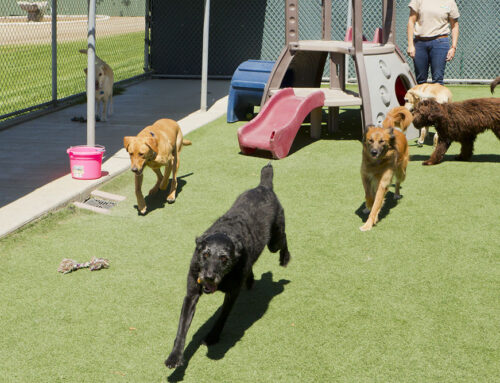Dental disease is one of the most prevalent—and most overlooked—health issues in companion animals. While many pet owners dismiss bad breath as harmless, it’s often the first warning sign of underlying oral infections that can lead to much more serious health complications. Without routine dental care, pets can suffer from chronic pain, tooth loss, and even systemic infections that impact the heart, kidneys, and liver.
At the Animal Clinic of Council Bluffs, we emphasize proactive dental care to protect your pet’s health and improve their quality of life.
Is your pet’s breath starting to smell? It may be more than just “dog breath.”
Schedule a visit at Animal Clinic of Council Bluffs
The Importance of Dental Care in Pets
Understanding Oral Health in Pets
Just like people, pets accumulate plaque—a sticky bacterial film—on their teeth, which can harden into tartar within a day or two if not removed. Over time, this buildup leads to inflammation, infection, and potentially irreversible damage to the gums and supporting structures of the teeth.
➡ Did you know? Over 80% of dogs and 70% of cats show signs of dental disease by age three. Early intervention is key to preventing long-term damage.
When left unaddressed, dental disease doesn’t just stay in the mouth. Oral bacteria can travel through the bloodstream, creating inflammation and damage in vital organs.
Learn more about preventive dental care:
AVMA Pet Dental Care Guide
Consequences of Untreated Dental Disease
Neglecting your pet’s dental health can lead to painful and serious consequences:
- Gingivitis: Early gum inflammation caused by plaque buildup. Reversible with proper care.
- Periodontitis: Advanced gum disease that damages soft tissue and bone, often resulting in tooth loss.
- Systemic infections: Oral bacteria can enter the bloodstream, causing infections in the heart (endocarditis), kidneys, and liver.
More on the risks of dental disease:
AAHA: Healthy Mouth, Healthy Pet
Identifying Common Dental Issues in Pets
Tartar and Plaque Buildup
Plaque forms when food particles mix with saliva and bacteria. If not brushed away, it quickly hardens into tartar—a mineralized deposit that irritates gums and harbors infection. Once tartar is established, it can only be removed through professional veterinary cleaning.
Daily brushing and regular checkups are your best defense.
AAHA: Your Pet’s Dental Care
Understanding Periodontal Disease
Periodontal disease is the most common cause of bad breath in pets—and one of the most preventable. It begins below the gumline, where bacteria and inflammation silently erode the bone and soft tissue.
Pets with periodontal disease often show no symptoms until the disease is advanced, making annual exams critical for early detection.
Risks of Tooth Fractures and Root Abscesses
Pets that chew on hard objects—like bones, antlers, or rigid plastic toys—are at risk of painful tooth fractures and root abscesses. Exposed tooth pulp can lead to severe infections that require surgical intervention or extraction.
Tip: Not all chews are created equal—opt for vet-approved dental chews instead.
More info: Diagnosis and Treatment of Fractured Teeth – Today’s Veterinary Practice
How Dental Disease Can Affect Your Pet’s Overall Health
The Impact of Oral Bacteria on Systemic Health
Oral infections don’t stay confined to the mouth. Bacteria from diseased gums can enter the bloodstream, traveling to organs and contributing to:
- Bacterial endocarditis (heart inflammation)
- Chronic kidney disease
- Liver infections
These complications can significantly shorten your pet’s lifespan and diminish their quality of life.
Learn more about how oral health connects to full-body wellness:
Royal Canin: Guide to Dental Disease in Small Breeds
The Threat of Jawbone Loss and Tooth Resorption
In advanced cases, periodontal disease can lead to jawbone deterioration, increasing the risk of fractures—especially in small or toy breeds. Cats, in particular, are prone to tooth resorption, a painful condition where the tooth structure breaks down from within and must be extracted.
Recognizing these conditions early makes treatment less invasive and more successful.
AKC: The Trouble with Toy Teeth
Preventative Measures for Dental Disease in Pets
The Importance of Routine Dental Cleanings
Professional dental cleanings under anesthesia allow veterinarians to:
- Remove plaque and tartar from above and below the gumline
- Assess for hidden issues like fractures or infections
- Polish teeth to slow future plaque accumulation
Some pets—especially small breeds—may require cleanings every 6–12 months depending on individual risk.
Why professional cleanings matter:
Your Pet’s Dental Care

Effective At-Home Dental Care Strategies
At-home dental care is the cornerstone of long-term oral health. Key practices include:
- Daily brushing with pet-specific toothpaste (never use human toothpaste)
- VOHC-approved dental chews that help remove plaque mechanically
- Water additives to reduce oral bacteria between brushings
- Dental diets formulated to support oral hygiene
Selecting Safe Chews and Toys
Avoid giving your pet anything that’s harder than their teeth. Safer options include:
- Rubber dental toys
- Rope toys
- Soft-textured dental bones
Watch out for signs of wear and discard any toys with sharp edges or damaged surfaces. The VOHC website is the best place to search for vet-approved home-dental products.
Recognizing When Your Pet Needs Immediate Dental Care
Be alert for these signs that indicate a dental issue requiring prompt attention:
- Persistent bad breath
- Red, swollen, or bleeding gums
- Difficulty eating or chewing
- Loose, broken, or missing teeth
- Drooling or pawing at the mouth
- Swelling around the face or jaw
If you notice any of these symptoms, don’t wait—early treatment can prevent more serious health issues.
Concerned about your pet’s dental health?
Contact Animal Clinic of Council Bluffs today!
Regular dental care is one of the most important investments you can make in your pet’s long-term health. With a combination of annual cleanings, daily at-home care, and early intervention, you can prevent painful conditions and help your pet live a longer, healthier life.
Ready to take the next step?
Schedule your pet’s dental exam today at Animal Clinic of Council Bluffs






Leave A Comment